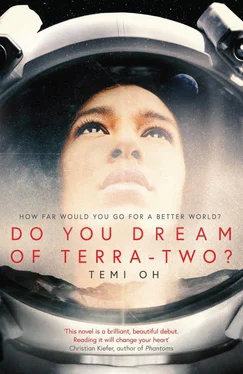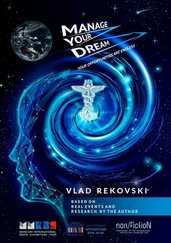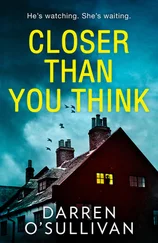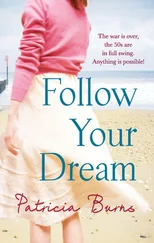AFTER HER MEDICAL EXAMINATION, Astrid found Ara throwing up in the toilet.
‘Did they clear you?’ she asked, fingering the green ‘cleared’ tag they had just snapped onto her wrist. Peering around the open door of the cubicle, Astrid recoiled at the pungent tang of vomit, clutching her own stomach. ‘Are you sick?’
‘I’m not sick,’ Ara gasped finally, sitting up to wipe the side of her mouth and waving her own green wristband. ‘There were butterflies in my stomach.’ Her eyes flitted back to the toilet as if they were actually in there, the butterflies, sunk in the water. Papery wings dissolving in bile. Ara flushed and then got unsteadily to her feet. Closing the cubicle door behind her, she rinsed her mouth out in the sink.
Astrid caught herself examining Ara’s reflection in the mirror. She looked a little green and the skin under her eyes was dark. Ara smiled at Astrid’s reflection in the glass.
Ara was not beautiful, but had inherited her Indian mother’s thick black hair, which fell in heavy waves past her waist and smelt of the jasmine oil she rubbed into it. She had spent years of her childhood in the North, so her tongue still tripped prettily over words like laugh and grass . In their first year at Dalton, she had told the other students that she could speak to the wind and everyone had believed her or wanted to believe her, because her eyes were black as magic and sometimes when she spoke a gust did pick up, knocking leaves across the field.
Astrid watched as her friend lifted her head and eclipsed the sun, which was beaming through the window behind her. She envied Ara. People who knew her had always been certain that she would be selected for the Beta, that she belonged amongst the constellations, although they’d also been mistakenly sure she would be selected to be their commander-in-training.
‘This is a great day.’ Ara turned to point out the dispersing clouds. ‘Can you feel it too, Astrid? It’s like being in love, you know. So sweet it’s painful, almost … everything is beautiful, but everything hurts.’
‘It’s because we’re saying goodbye all the time now,’ Astrid said. ‘It’s kind of exhausting.’
Ara turned and leant against the window ledge. ‘When I was younger and I fell asleep on car journeys with my dad, I’d wake up in my bed the next day, sometimes with my shoes on under the duvet, and I’d know that he’d carried me. Which I liked so much that sometimes I’d just pretend to sleep as the car turned into our road, so that I could feel him lift me over his shoulder then put me in my room. One time I opened my eyes when my head hit the pillow and he told me that soon I’d be too old to be carried.
‘It happened less and less until now – obviously – when I fall asleep in the car, he just wakes me up and I walk to my bedroom. Take my own shoes off.’
‘I think that’s pretty normal,’ said Astrid. Their voices echoed slightly in the little room.
‘I know, but the problem is that when I turned twelve I couldn’t remember the last time he carried me. I still can’t. Probably when it happened I just thought that it was another time. The last time I was carried, the last time I saw Brighton Pier, or Trafalgar Square, I didn’t know it was…’
‘What would you have done if you had known?’ Astrid asked.
‘I don’t know.’ Ara frowned, her sight turned inwards with thought. Finally, she shrugged and said, ‘I don’t know. Felt it.’
Astrid wasn’t so sure. Some part of her was sick with excitement about taking off in the shuttle tomorrow but the same part of her was gutted by grief. When she had said goodbye to her parents, nine days ago, she had known for sure that she would never hug them again. The knowledge had quickened in her an impossible urge to tell them everything that they meant to her. To thank them for everything. But when the moment came to say it – to thank them for school fees, for her mother’s paper-cut Christmas decorations, for every hot meal for her bones and for her beating heart – she had only waved.
‘You know,’ Astrid said, as Ara climbed off the window ledge, ‘sometimes it’s a good thing. When you don’t know it’s the last time.’
T-MINUS 24 HOURS
HER BOYFRIEND, NOAH FLINN, had once shown her a graph of the inverse-square law, and pointed to the curve, force over distance, which decreased rapidly at first and then levelled off, like a playground slide. ‘As you leave the Earth,’ he’d said, ‘the force of gravity halves and halves and halves and halves until there’s barely anything pulling you back.’
Juno imagined that was how she would feel about him as she hurtled out of orbit. First, the keen pierce of heartbreak, but that would dull soon enough into an endurable ache, then again in ever-decreasing increments until she felt nothing, almost nothing, for him at all.
When their cars pulled up outside the British Interplanetary Society, a throng of reporters were gathered on the pavement and the crew lined up to greet them before heading into the building. Juno had only visited the BIS a couple of times before, for school trips and lectures, or to see the Aerospace Museum. The Edwardian building was like a geometric illusion, modest on the outside but vast as an airport hangar on the inside. Her head reeled as they stepped under the soaring glass dome above the foyer.
‘Wow,’ Eliot said with a low whistle, looking up.
An art deco chandelier flung refracted stars of daylight across the black marble floor. Juno admired the effect, stretching out her palms to catch the glimmer on her fingertips as the others moved off. ‘I always forget how big this place is,’ she said, to no one in particular. Through the foyer, the main hall was like the visible edge of an iceberg, arranged in descending mezzanine decks that telescoped down into a dark courtyard, where a life-sized reconstruction of a pre-First World War space shuttle was erected. From where she stood, Juno could almost touch the top of it.
‘It’s six storeys high.’ Juno turned towards the familiar voice, and saw him bounding up the stairs.
‘Noah?’ she said. His head of platinum curls bounced as he walked. It felt like months since Juno had seen him, although it had only been nine days. He had come along with her parents to drop her and Astrid off at the space centre. After their final dinner, he held her hand in the back of the car and mouthed Always, I’ll always, I’ll always love you , as streets ghosted past.
‘How did you know I would be here?’ she asked.
‘You know, you’re kind of famous,’ he said with a smile. ‘My internship doesn’t officially start until next week, but I asked to come in today, at short notice.’ He fingered the society’s blue crest on his shirt. A rocket and three stars: Earth space, near space and deep space. ‘Because I knew you were coming for the tree planting.’
‘That’s right,’ Juno said, ‘I forgot that you might be here.’
‘Well, I didn’t know whether I’d see you, but my manager says that if there’s free time I could show you around a little. Maybe, after the ceremony. I’m guessing you chose your favourite tree.’ When Juno nodded, he continued. ‘You’re in good company, because Annie Tyning, the first British woman in space in…’ His blue eyes rolled up in thought, ‘’53 or ’54, chose a wild apple tree as well. It’s one of my favourites. I actually really like sitting down there, in the Flight Garden. And thinking about how almost every GB astronaut has touched the ground under me.’
‘I think I’d probably do that too. If I worked here,’ Juno said.
There was an awkward confusion between Juno and Noah, the kind that comes after saying all your goodbyes once, only to meet again. Their energy was spent and the idea of facing the theatrics of a second goodbye struck Juno as silly now.
Читать дальше






![Theresa Cheung - The Dream Dictionary from A to Z [Revised edition] - The Ultimate A–Z to Interpret the Secrets of Your Dreams](/books/692092/theresa-cheung-the-dream-dictionary-from-a-to-z-r-thumb.webp)





